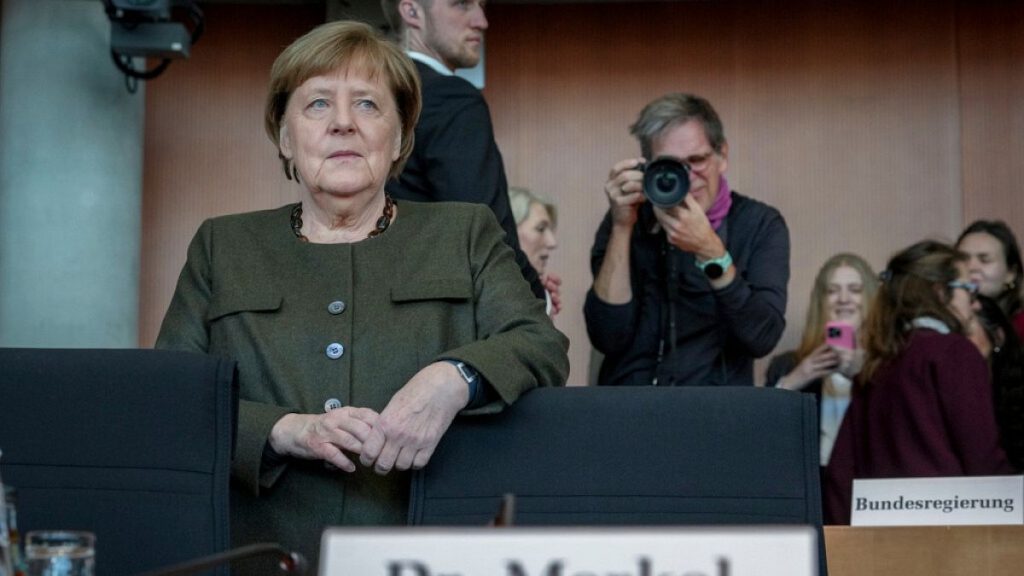Angela Merkel’s testimony before the German parliamentary inquiry committee provided a comprehensive account of the chaotic 2021 withdrawal from Afghanistan, revealing a narrative of miscalculations, unforeseen events, and ultimately, a sense of shared international failure. Merkel, who served as Chancellor during the period, painted a picture of a rapidly deteriorating situation that caught Western powers off guard, leading to a hasty and ultimately tragic exit. Her account highlights the complexities of the Afghan mission, the limitations of Western intervention, and the profound consequences of underestimated factors, culminating in the Taliban’s swift resurgence.
The former Chancellor’s testimony underscored the suddenness of the Afghan government’s collapse, emphasizing the surprise experienced not only by Germany but also by the United States. Merkel recalled being briefed on the escalating situation upon returning from vacation on August 13th, 2021, and subsequently authorizing the evacuation of German forces. However, the rapid succession of events, particularly Afghan President Ashraf Ghani’s unexpected flight from Kabul, overwhelmed preparedness efforts. Merkel’s comparison of Ghani’s departure with the steadfastness of Ukrainian President Volodymyr Zelenskyy during the Russian invasion further emphasized the perceived lack of resilience within the Afghan leadership, a factor that significantly contributed to the collapse of the Afghan government.
Merkel acknowledged the broader shortcomings of the international mission in Afghanistan, admitting that the ambitious goals of establishing Western-style governance and upholding human rights, particularly for women, proved overly optimistic. She attributed this failure to a complex interplay of factors, including deeply entrenched issues such as corruption, nepotism, and the thriving drug trade within Afghanistan. Moreover, Merkel highlighted the insufficient understanding of the cultural landscape and the geopolitical dynamics, particularly the influence of neighboring Pakistan, as critical oversights that hampered the effectiveness of the intervention. This frank assessment suggests a degree of self-criticism regarding the West’s approach to nation-building in Afghanistan, acknowledging the inherent difficulties of imposing external models on a society with its own complex history and internal dynamics.
While acknowledging the failures and miscalculations, Merkel also defended the initial decision to intervene in Afghanistan following the 9/11 attacks, arguing that the perceived threat of terrorism justified the military action at the time. This nuanced perspective reflects the prevailing sentiment in the immediate aftermath of the attacks, where the global community rallied behind the United States in its pursuit of Al-Qaeda and the Taliban regime that harbored them. However, Merkel’s subsequent admission of having “taken on too much” suggests a recognition that the initial objectives of the intervention evolved into an overly ambitious and ultimately unsustainable nation-building project, divorced from the initial impetus for military action.
The parliamentary inquiry, with Merkel as its final witness, aimed to dissect Germany’s specific role in the withdrawal and learn from the experience. The extensive investigation, involving over 111 witnesses, underscores the German government’s commitment to understanding the events that led to the chaotic exit and to identifying potential shortcomings in its own planning and execution. Merkel’s testimony, as the culmination of this process, provides a valuable insider perspective on the high-level decision-making during this critical period, offering insights into the challenges faced by political leaders grappling with a rapidly evolving and unpredictable crisis.
The Afghan withdrawal serves as a stark reminder of the complexities of international interventions and the limitations of military solutions in addressing deep-seated societal and political challenges. The hasty exit, the humanitarian crisis that followed, and the resurgence of the Taliban underscore the need for thorough assessments of geopolitical realities, cultural sensitivities, and the long-term sustainability of interventions. Merkel’s testimony, while providing a retrospective analysis of the German experience, also offers broader lessons for the international community, highlighting the importance of realistic goal-setting, cultural understanding, and a clear-eyed assessment of the potential risks and unintended consequences of military interventions.














